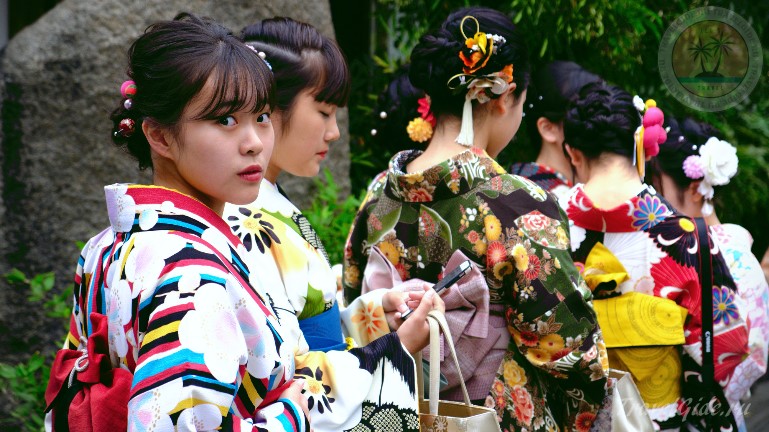
How not to behave in Japan: Japanese rules of decency
JPoland is a country with a completely different mentality, therefore, the actions and behavior habitual for Europeans may be unacceptable in this country. Even ordinary and harmless, in our opinion, actions there may turn out to be offensive or even illegal. Here are some examples of what NOT to do in Japan.
Talk on the phone on the subway and trains
It would seem that this is normal, natural and completely legal. But everywhere in the cars of electric trains you can see a sign asking you not to talk on the phone.
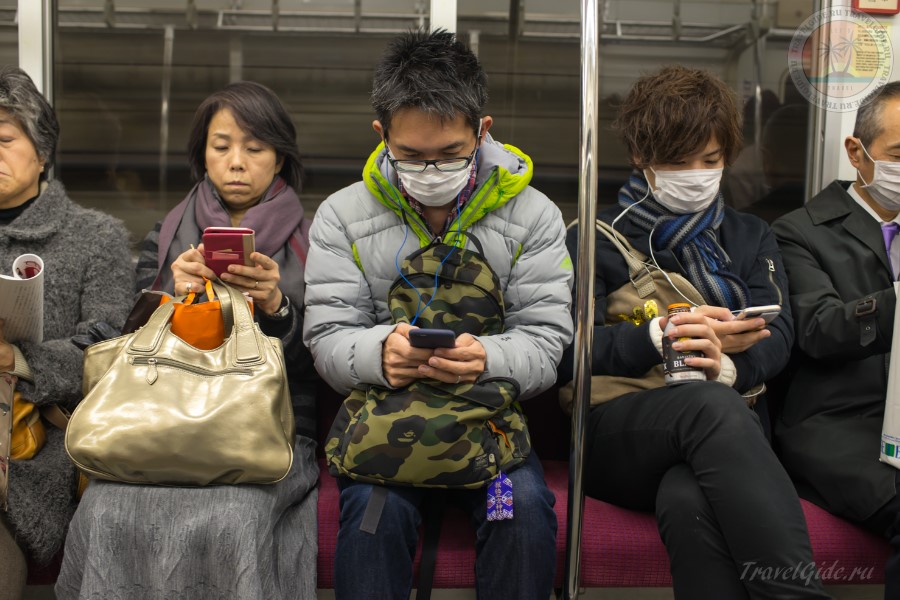
In fact, loud conversations in an enclosed space can disturb other passengers. And the Japanese themselves very rarely talk on the phone and try to talk quietly to each other on the train. And next to places for the disabled and children, they don’t even hold the phone in their hands.
No one will fine you if you talk on the phone on the train, but the Japanese themselves will consider you impolite and perhaps someone will even make a remark.
Entering a room without taking off your shoes
In principle, we are not in the US, so this tradition should not particularly surprise us. In most houses, guests are asked to remove their shoes and leave them in the hallway. The Japanese also follow this tradition.

But in Japan, the "take off your shoes" principle also works when entering some public places, such as temples, schools, hospitals, and even some traditional ryokan inns. It is also forbidden to walk in shoes in some restaurants, where there is a hall in which visitors sit on the tatami.
And one moment. Japanese house slippers too change at the entrance to the toilet. Appropriate shoes are given out at the entrance, and after the toilet they are changed back.
Set the phone ringer to maximum volume
This is dictated by the same unwillingness to interfere with others. In general, while in Japan, it will be better to put the phone on silent mode. For most Japanese people, the phone is constantly on vibrate mode, and only pensioners or people with hearing problems can have a regular call.
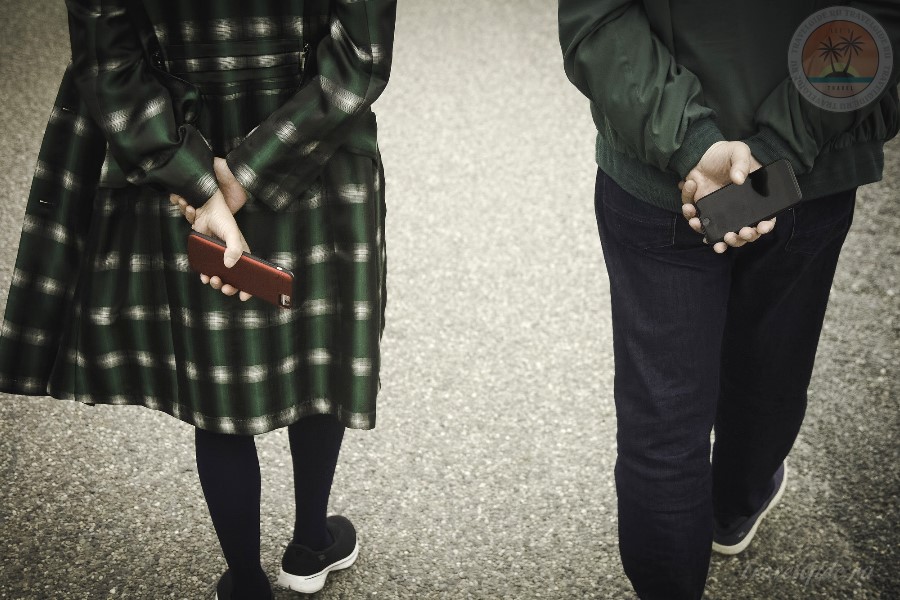
If you have watched Japanese anime and movies, you might have noticed that even there, the phones of the heroes are always on silent mode. Therefore, it is, albeit not a strict law, but a clear rule of modern etiquette.
In order not to draw attention to yourself, you should follow the example of the Japanese and turn off the sound on your phone.
Trying to skip the line where it is
When the Japanese are waiting for a bus, train, or even an elevator, they line up. The platforms are properly labeled, so it's easy to see where the queue should form. You must adhere to these same rules and do not try to squeeze yourself into a subway car while others are patiently waiting.
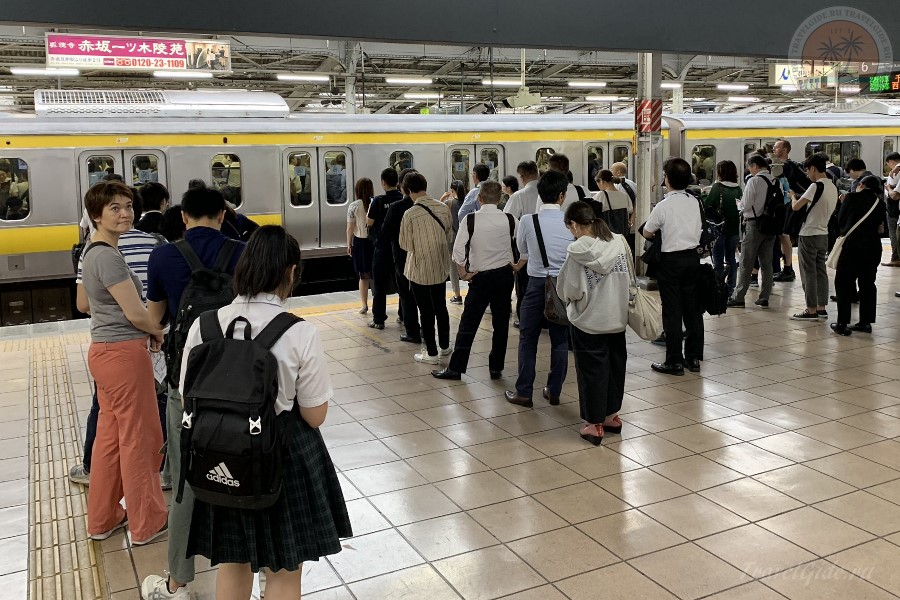
By the way, there are special employees in the metro who direct the movement of queues and, when the metro car is overflowing, help people get there.
Leave a tip in a cafe, bar or restaurant
In European culture, it is quite natural to thank a person for a good job with a monetary reward. Therefore, tips are often left for waiters and taxi drivers. In the US, not leaving a tip is breaking the rules and depriving the waiter of a legitimate reward.
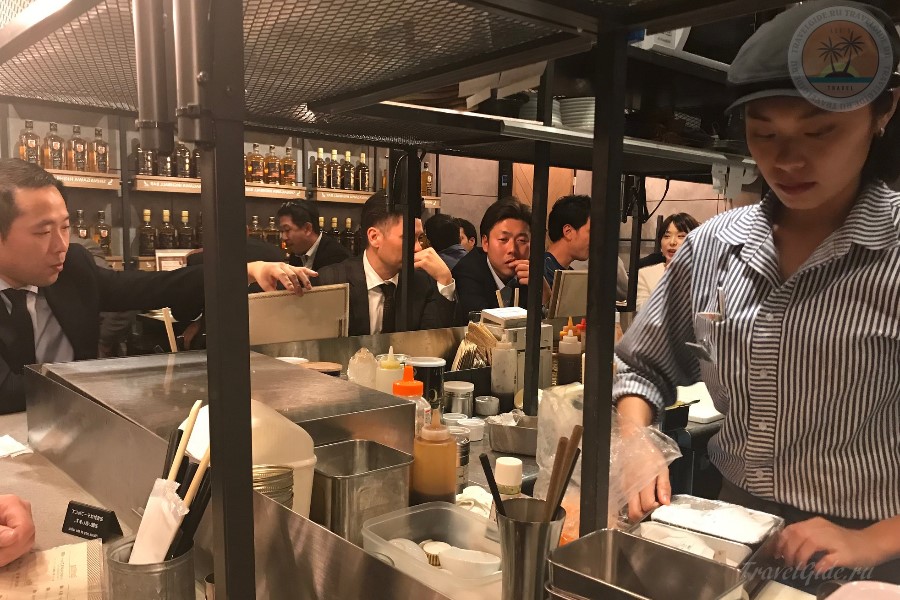
Japanese traditions are fundamentally different from European and American ones. In Japan, you will be served first-class, very polite and attentive to you. But there is no need to leave a tip for the waiters.
In this country, it is customary to treat their work conscientiously, and therefore, even in the service sector, the Japanese perform their duties as efficiently as possible. And they get paid for it.
The fact that you leave money to the waiter as a token of gratitude can be regarded by them as a pity on your part. It can almost be considered an insult. I recommend: before you go on vacation to a Japanese bar, learn more about the rules of conduct in such establishments: Before you go to a bar in Japan: 10 important concepts and phrases.
Any waiter will thank you, but will return the money. Even if you have already left the cafe, he can catch up with you to apologize and return them back.
And also in every store, if you leave change, the seller will remind you and ask you to pick it up.
Of course, in Japan there are situations when tipping is appropriate and expected, but not in cafes and restaurants. Read more in the article Tipping in Japan: Which Japanese Can Be Tipped?.
Smoking outside and in certain public places
In Tokyo and many other Japanese cities, smoking is prohibited everywhere except in designated areas. On the street, these are small fenced spaces with trash cans and ashtrays.
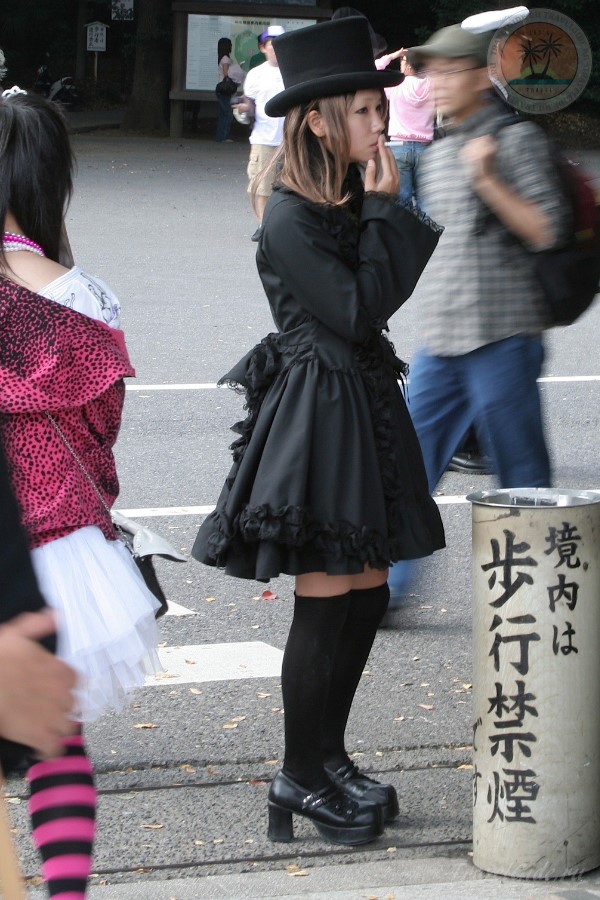
There are also smoking rooms equipped with chic and comfort at the expense of companies selling tobacco products. Similar in cleanliness and equipment halls are available at airports, railway stations and trains.
But you can't smoke anywhere on the street, even if there is no one around. It's not accepted and no one does it. With the exception of illegal citizens. Fines apply for smoking in prohibited areas.
It may seem strange to some, but in bars, cafes, restaurants, dance floors, smoking areas are not strictly defined. On the contrary, in some large establishments there are non-smoking areas. So, if you feel like smoking, look for dedicated smoking areas on city streets or go to the nearest bar.
Throw out trash without sorting
Tokyo is one of the cleanest cities in the world. And cleanliness in Tokyo is not because public utilities work there amazingly. Unlike India, where garbage is almost a national tradition, the people of Japan are taught from childhood not to litter or litter.
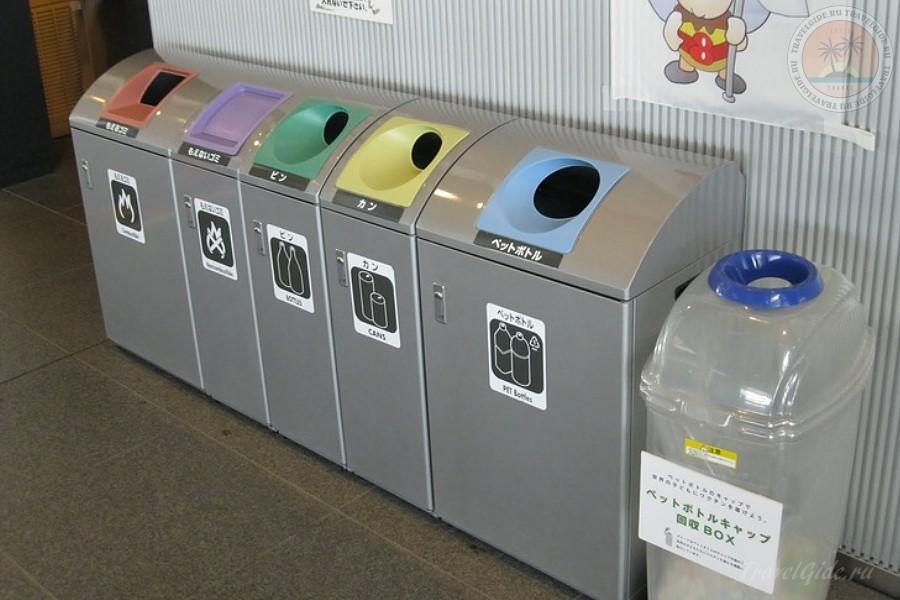
It is very rare that someone just throws a candy wrapper, a bottle or a cigarette butt on the ground. All rubbish is thrown into the bins. And for each type of garbage there is a container.
All garbage in Japan is divided into groups and thrown only into those bins that are intended for a certain type of garbage. So, plastic containers, food waste, plastic bags, aluminum containers, glass containers and other waste are disposed of separately.
For uncontrolled waste disposal without taking into account the requirements for its sorting, rather high fines are provided. If you are a foreigner, then such an offense may even become a reason for the interest of the migration service. Therefore, you need to be careful what and where you throw away.
Taking pictures of strangers without their permission
Every tourist wants to bring a lot of photos from the trip. There is definitely something to photograph in Japan: temples, monuments, beautiful houses and streets.

However, you need to be very careful with photographing on the street. If you are photographing sights, then try to choose angles where there will not be many passers-by in the frame.
In this country, the problem of harassment of girls is still very relevant. There are sensational stories about perverts photographing schoolgirls under skirts and molestation in public transport.
But there are also stories about how some girls still speculate on these problems. Cases of direct blackmailing of men by such girls are not excluded.
Therefore, even a harmless photograph of a Japanese woman passing by can be regarded by someone as an invasion of personal space.


